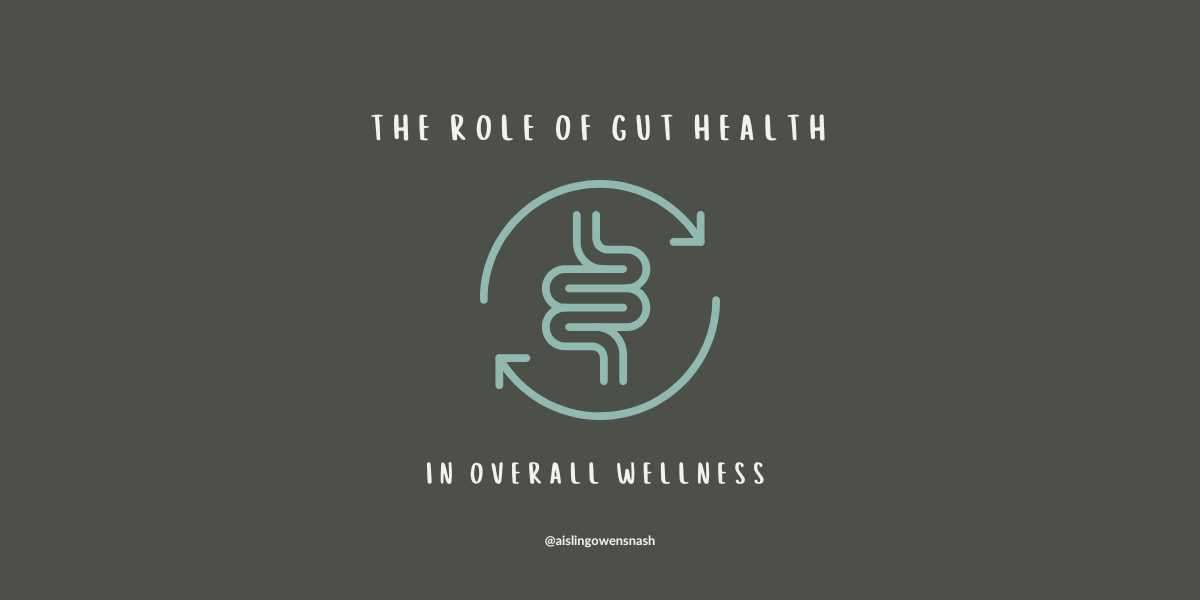The role of the gut in overall wellness.
Your gut is more than just a digestive system; it’s a powerhouse influencing everything from your immunity to your mental health. A healthy gut, supported by a diverse microbiome, is crucial to overall wellness. Most people don’t understand why gut health matters, how it impacts your body and mind, and practical ways to keep it thriving, so here we go!
Why Is Gut Health Important?
The gut microbiome is home to trillions of bacteria, viruses, and fungi that play vital roles in your body. These microorganisms help digest food, produce essential nutrients, regulate hormones, and support your immune system. They even influence brain function through the gut-brain axis.
Key Stats and Insights
- About 70% of your immune system is located in your gut【1】.
- Studies show that an imbalanced gut microbiome (dysbiosis) can lead to issues like inflammation, poor mental health, and chronic diseases【2】【3】.
- The gut-brain axis links your digestive system to your mental health. For instance, low levels of beneficial gut bacteria have been associated with anxiety and depression【4】.
Signs of Poor Gut Health
Wondering if your gut might be struggling? Here are some common signs:
- Digestive Issues: Bloating, gas/wind, or irregular bowel movements.
- Fatigue: A sluggish gut can impact nutrient absorption, leading to tiredness.
- Skin Problems: Conditions like eczema or acne may be linked to gut imbalances and the gut gene IL17a.
- Frequent Illnesses: A weakened immune system often points to poor gut health.
- Mood Swings: Imbalanced gut bacteria can influence serotonin levels, affecting your mood.
How to Support a Healthy Gut
The good news is, that improving gut health is achievable through small, consistent changes in your diet and lifestyle and you can literally change the bacteria in your gut in around 24 hours- for better or worse! Here’s how to do it for the better!
1. Eat a Diverse Diet
Include a variety of fruits, vegetables, whole grains, and legumes. Foods rich in fibre feed the beneficial bacteria in your gut.
- Top Choices: Broccoli, bananas, oats, and beans- provided legumes don’t trigger you.
- Pro Tip: Aim for at least 30 different plant-based foods each week to promote microbiome diversity【5】.
2. Incorporate Probiotics and Prebiotics
- Probiotics are live bacteria found in fermented foods like yoghurt, sauerkraut, and kombucha.
- Prebiotics are fibres that feed probiotics. Good sources include garlic, onions, and asparagus.
- Supplements: If your diet lacks variety, consider a high-quality probiotic supplement.
A personal recommendation: I use the Arbonne Glow Shot to boost my collagen production through plants, it contains 36 varieties of plants and it contains both prebiotics, probiotics and digestive enzymes. This type of support is often called a synbiotic. You can try it here for 90 days with a money-back guarantee. Enter Arbonne10 for 10% off or DM me on Instagram or Facebook for 20% off details. Available in USA, Canada, New Zealand, Australia, United Kingdom and Poland. #Affiliate
3. Stay Hydrated
Proper hydration supports the mucosal lining of your intestines and helps keep your gut bacteria balanced.
4. Limit Processed Foods
Foods high in sugar, unhealthy fats, and additives can harm gut bacteria and lead to inflammation.
- Did You Know? Artificial sweeteners like aspartame may negatively affect gut bacteria【6】.
5. Manage Stress
Chronic stress can alter your gut bacteria and lead to digestive issues.
- Tips: Practice mindfulness, engage in regular exercise, and prioritise sleep. Check the other blogs for more on each of these topics!
6. Get Regular Exercise
Physical activity increases gut microbial diversity, contributing to better overall health.
- Simple Steps: A daily 30-minute walk or yoga session can make a big difference.
Foods to Include for Gut Health
Want to supercharge your microbiome? Here’s what to add to your plate:
- Fermented Foods: Kimchi, kefir, and miso are rich in probiotics.
- Fibre-Rich Foods: Lentils, flaxseeds, and leafy greens support digestion. For the seeds, blended is most easily absorbed and effective.
- Polyphenol Foods: Berries, green tea, and dark chocolate contain compounds that feed good bacteria.( I get mine fresh or from my daily glow shot)
Gut Health and Immunity
A strong gut supports a resilient immune system. Beneficial bacteria help regulate inflammation and produce antibodies that protect against infections.
- Fact: People with a balanced gut microbiome are less likely to suffer from seasonal illnesses like colds and flu【7】.
Gut Health and Mental Wellness
The connection between gut and brain health is undeniable. The gut produces neurotransmitters like serotonin, which regulate mood, sleep, and even pain.
- Statistic: Approximately 90% of serotonin is produced in the gut【8】.
- What You Can Do: Eat foods rich in tryptophan (like nuts, seeds and good quality turkey) to support serotonin production.
Practical Tips for Everyday Gut Health
- Start Your Day with Fibre: Add milled chia seeds or flaxseeds to your breakfast.
- Snack Smart: Swap crisps for a handful of almonds or a cup of coco start yoghurt.
- Cut Down on Antibiotics: Only use antibiotics when absolutely necessary, as they can disrupt gut bacteria and generally wipe all good bacteria out. Try taking some raw garlic as a first step. (see my other blog on this and the research)
- Stay Active: Incorporate simple exercises, like walking or stretching, into your daily routine.
Your Gut, Your Health
Your gut health is a cornerstone of overall wellness, impacting everything from digestion and immunity to mental health. You can create a healthier, happier gut by making small, consistent changes to your diet and lifestyle. It is literally that simple.
If you’re ready to take the next step, explore my nutrition and gut health resources over in my app or one of my Gut Health Conversations.
Aislíng x
References
- Harvard T.H. Chan School of Public Health: "Gut Health and Immunity."
- National Institutes of Health (NIH): "The Role of Gut Microbiota in Health and Disease."
- Mayo Clinic: "Gut Health and Mental Health Connection."
- Nature Reviews: "Microbiota-Gut-Brain Axis."
- British Journal of Nutrition: "Diversity in the Gut Microbiome and Its Benefits."
- Gut Microbes Journal: "The Impact of Artificial Sweeteners on the Microbiome."
- Journal of Immunology: "Gut-Associated Lymphoid Tissue and Immune Function."
- Psychology Today: "The Gut-Brain Connection."








